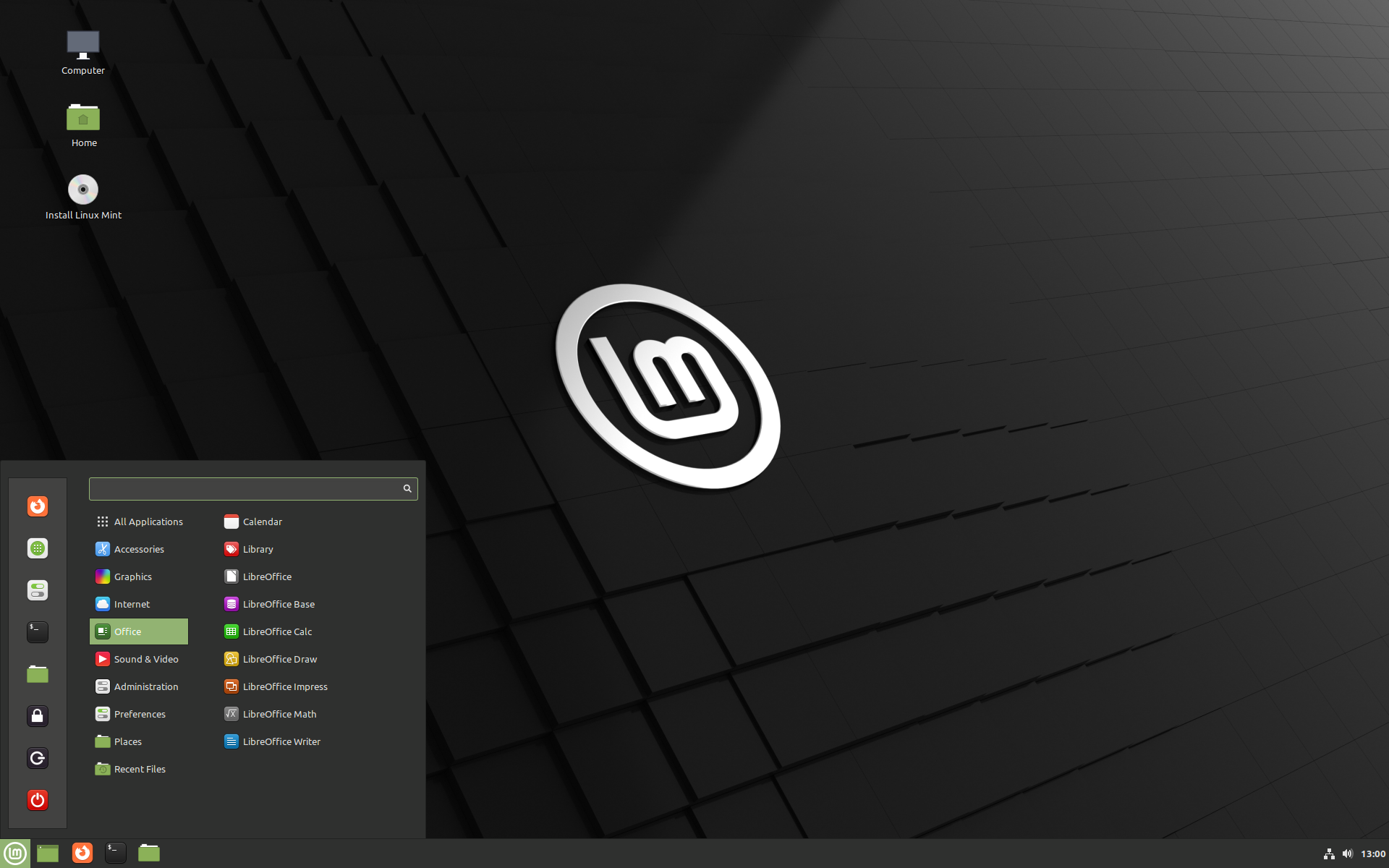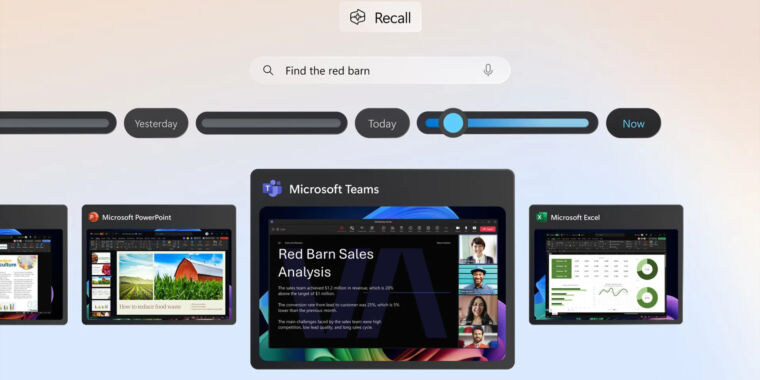shoutout to microsoft, the single biggest promoter of linux out there. i really do got to switch over now, don’t I?
Yes ma’am. If u need any pointers or help on how to get started you can dm me.
deleted by creator
If you’re interested in deprogramming yourself from silicon valley and it’s your first time ever using GNU/Linux then you should start with Linux Mint.
My dms are always open if you need a linux expert ™ or just a buddy guide.
deleted by creator
And if you keep it out in the open instead of DMing hello_hello I would love to read about your journey in linux.
deleted by creator
I’m seconding hello_hello’s recommendation to use Linux Mint.
Also, if you (or anyone reading this) is on the fence, go through the Linux Mint installation instructions until you’re in the live session. You’ll get a screen that looks like this:

At this point you can fiddle around, browse the internet, try some of the pre-installed apps, and see if you like it. If you don’t, you can just restart your computer and unplug the thumb drive, and no changes will have been made at all. It won’t actually do anything to your computer until you open the “Install Linux Mint” app.
Shit. I am going to have to go over to linux soon aren’t I?
If you start wearing programming socks it’ll happen on its own.
laughs in linux
noooo you cant do that dont be mean I have my special reason to keep using windows so you have to join with me in loudly complaining online so microsoft will notice and change,
laughs even harder in linux
Every medical IT person who spent any time in the last few years getting their systems working with windows:

This is where I keep promoting Linux. Go try Linux Mint folks. It’s the best way (in my opinion) to dip your feet into the pool that is Linux.
Strongly seconding this, Mint is an amazing distro for Linux newcomers. It’s very stable, very efficient, it has the massive Debian/Ubuntu software repos, it works out of the box with a massive amount of different hardware, and the default desktop has a very Windows-like layout which greatly eases the learning curve. And frankly, it’s a great choice even for the super-nerdy Linux veterans like me. I’m typing this on a laptop running the default Mint experience - all hardware supported by default - and I’m very happy with it.
I’ve been using Linux on the desktop for over 25 years now. I cut my teeth on Slackware 3 via floppy disks. I’ve used a lot of distros and desktop environments of various flavours and interface layouts over the years. I build Linux From Scratch every 2-3 years or so, just to keep up to date on how it all works under the hood. Linux is in my bones and blood at this point. Not to toot my own horn, but I think I know what I’m talking about on the topic. Mint is my go-to suggestion for any new Linux user.
Me waiting for linux mint 22 to release to start my propaganda blitz for windows refugees.

As soon as i’m finished with Shadow of the Erdtree I’m uninstalling Windows for good.
Where will Windows users draw the red line? Please, for the love of Lenin, just install a Linux distribution. It’s not as scary as it seems, I promise. Pick something that has a large user base, things like Fedora, Linux Mint, Ubuntu, literally anything is better than Windows at this point. This is especially important if you’re doing any real life organizing that requires you to do things on your computer, don’t just hand over everything to Microsoft (who will hand over everything to any government that asks) out of convenience.
For all my time educating about free software I realized that there is no red line for Windows users, nor for any nonfree program.
Silicon Valley and the USA are the world hegemon which includes curbing any and all knowledge or awareness of software freedom both domestically and abroad. It’s a landlord empire but for computer science where people will defend their landlords because to not do so would be taboo. (The tech “ecosystem” myth)
GNU Project founder Richard M. Stallman points out in his writings and talks that companies like Apple will build a jail so lucrative and advanced that people will beg to be imprisoned and it makes so much more sense.
The tech “ecosystem” myth
I’m not sure how it’s a myth. Yes there are some analog software on Linux, but any downtime to research, switch, and retrain people is unacceptable to these companies. It’s better for them to promote the same cycle of bullshit because it keeps their operation disruptions at a minimum.
Ecosystem when used in the context of software development (and production as a whole) is at most a buzzword for capitalists to greenwash their unsustainable and exploitative supply chains and management practices to outsiders.
There is no ecosystem (not in any definition that is analagous to its actual scientific definition), only purposeful human decisions and human made structures of power. To use the word ecosystem in this context could run the risk of erasing people’s (both capitalists and the proletariat) agency as well as deter the conversation away from capitalism and into idealism about human communities
Just like you mentioned, the capitalist class has no interest in slowing down and in a capitalist society, their word is law. The field of computer science and IT is dominated by multinational corporations whose interest is to keep the inherently harmful system going.
“The fast food ecosystem” “the fossil fuel ecosystem” “the boeing whistleblower assassination ecosystem” sound horrible, so why is it different for discourse surrounding computer technology? Just because it is a term in the zeitgeist doesn’t mean it should be used.
Most of the world runs windows or Mac for everyday things. They’re deeply inside of ecosystems of programs that aren’t available on Linux or don’t work as well. Individuals moving to Linux won’t do anything. The only way for it to gain traction is is large companies not only declared their switch, but also request and/or develop the same proprietary bullshit like photoshop on Linux. There are some companies like Valve trying to promote Linux and FOSS but for their own profit driven agenda, bur even that’s fine because at least it’s something. I can’t see Adobe doing the same
Most users don’t care about Microsoft watching them jerk off as long as the computer works well enough to let them do it undisturbed
If I was Tim Apple, I would simply develop macOS and Linux to take away Microsoft market share then halt resources from Linux development to draw people to apple.
If I was Tim Apple, I would simply develop macOS and Linux to take away Microsoft market share then halt resources from Linux development to draw people to apple.
They have already done this. The LLVM toolchain (like the clang compiler) and zsh were implemented in MacOS to get around GNU and assorted copyleft programs.
Individuals moving to Linux won’t do anything. The only way for it to gain traction is is large companies not only declared their switch, but also request and/or develop the same proprietary bullshit like photoshop on Linux.
I think it’s more nuanced than that. It also has to do with the fact that free operating systems are not in the supply chain. In a capitalist system, nonfree software is prioritized because of its rent accumulating behaviour and control. Only a socialist system could address the inequality inherent to proprietary supply chains. In order for this socialist system to work it must not start from scratch. Individuals moving to free software and understanding their freedom should be considered a vital part of a socialist education. Educating and agitating for free software and free software communities is more important (imo) than open source photoshop.
The only way for it to gain traction is is large companies not only declared their switch, but also request and/or develop the same proprietary bullshit like photoshop on Linux.
No, state actors are also crucial. China getting rid of the NSA spyware that is Windows and MacOS on their government PCs is an important step. At a certain point, those clerical workers who spend thousands of hours per year on a Linux distro are going to continue using what they are familiar with when they get home. They’re not going to waste their free time (re)learning how to use Windows or MacOS when they’ve already have thousands of hours of experience with Linux at work. With this boost in Linux users, Adobe and et al can either leave free money at the table by continuing to not support Linux and have that free money be snatched by Chinese developers or they can port their enterprise software to Linux. And with that, the last real roadblock towards wide desktop Linux adoption is lifted.
My current rig is the last one with Windows. I need Windows for music production but for everything else I think I can use Ubuntu or something like it.
As you might imagine, all this snapshot recording comes at a hardware penalty. To use Recall, users will need to purchase one of the new “Copilot Plus PCs” powered by Qualcomm’s Snapdragon X Elite chips, which include the necessary neural processing unit (NPU). There are also minimum storage requirements for running Recall, with a minimum of 256GB of hard drive space and 50GB of available space. The default allocation for Recall on a 256GB device is 25GB, which can store approximately three months of snapshots. Users can adjust the allocation in their PC settings, with old snapshots being deleted once the allocated storage is full.
yeah no thanks
I wish they’d make an ARM linux netbook instead of this bullshit.
A comment at a different site
Personal-if-firefox-detected-on-screen-microsoft-ad-popup-inserter

ron-swanson-throwing-computer-in-dumpster.gif
so at least for now this is only available for “Copilot Plus PCs”. the fuck is that?
thanks windows for validating my unhealthy paranoia around privacy



















